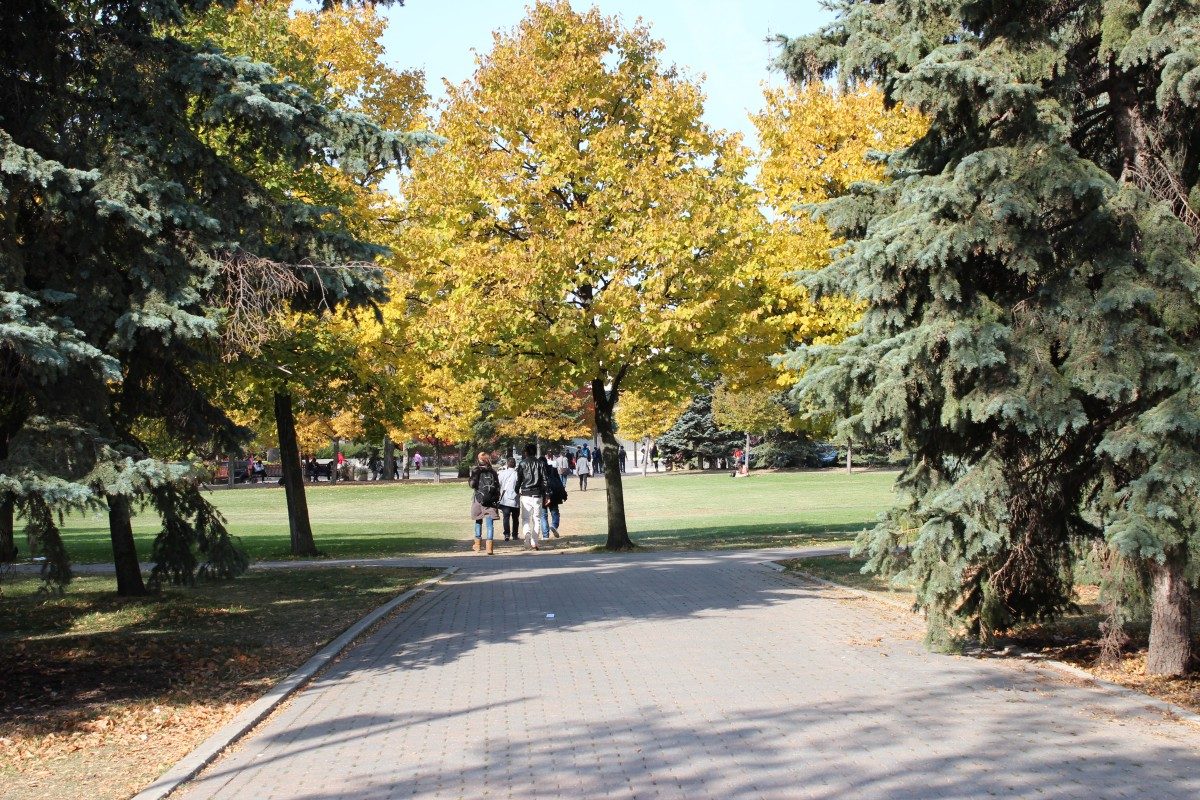
Experiencing the Wisdom of Epangishmok
Edgar French, spiritual care coordinator at the University of Manitoba, will explain some important holidays and celebrations from different faith traditions throughout the year.
Autumn, that liminal season that cushions our crossing from summer’s life-charged months to winter’s stark barrenness. Change is in the air. You can smell it, see it in the diminishing daylight, feel it in the coolness of the breeze. Another aged and languishing summer has gone by. With the coming change in the season I’m reminded of the variety of changes and transitions we may be experiencing – the start of a new academic calendar year, embarking on university studies for the first time, continuing on with a new program, a new job. It’s all systems go from here on! Time to get back at it! There is an element of tempering wisdom, however, evident in the fall season, the break it offers between the extremes of summer heat and winter cold. It extols the benefits of not rushing headlong into change without pause; a reminder that change is a process. Change requires adjustment. It requires time. You can almost hear the fall breeze whispering in our ears, “What’s the rush?”
As I consider the number of faith traditions and philosophies that observe holidays during the month of September, I’m struck by how this autumnal wisdom is embodied and uniquely expressed in each tradition. Jainism, one of the most ancient religions on the planet, observes the festival of Paryushan. Celebrated between September 6 – 13, it is a time of great introspection. Jains recall the wrongdoings of the previous year, which have contributed to karma, and divest themselves of such by fasting, meditating and seeking reconciliation with people they have wronged. The origins of the festival, curiously, have seasonal underpinnings. Tradition has it that after the monsoon rains and harvest, people in certain parts of India would resort to a more sedentary and slower pace of life. With the increase in rain came an increase in insects. Being outdoors augmented the likelihood of killing insects and so violating Ahisma or the principle of non-violence, one of Jainism’s main tenants. Consequently, before the surplus of free time people tended to stay home and would resort to self-purification and contemplation.
The Jewish high-holiday of Yom Kippur, celebrated on September 19th, is similarly reserved for self-reflection and recommitment. Regarded as the holiest day of the year for Jews, it is a day dedicated to setting things right, reconciling and seeking forgiveness before God and others. Like Paryushan, Yom Kippur encourages the faithful to practice the virtues of self-reflection and examination through prayer and fasting. All such disciplines require a slowing down of life and a posture that is reflective of the season that was and the one that is to come.
This wisdom is perhaps most markedly present in Ojibwe spirituality, noticeably in the teachings of the Medicine Wheel and the western direction – traditionally referred to as Epangishmok. I first encountered these teachings at a Smudge ceremony, Sharing Circle and Drum song led by elder Betty Ross at Victoria Hospital. It was a timely exercise and reminder for an eager Spiritual Care provider who longed to help patients and rid the world of suffering (Okay, a little overstated but you get the picture!). The western direction which symbolizes the fall season, among many things, is a time reserved for evaluating what is going on in our lives. At harvest time we gather and appraise the fruit of our labour.
Epangishmok also reflects the adult stage in the life cycle. Here we become well acquainted with the fragility of life, the reality of death and loss and that life is riddled with change. It is through the heart that we evaluate and come to terms with the flux of our lives. The late elder Lilllian Pitawanakwat describes the central role of the heart as helping us, “… appreciate and enjoy the fruits of life, and to accept aging and change, making peace with our lives and deaths. We are given the responsibility to nurture our hearts, so that we may be in balance…”.
As we ease into a new season here on campus, where are you in need of balance? What might transitioning gently into this fall term look like for you, and how might it provide the clarity of mind, heart and spirit that is needed to prepare well for the journey ahead? Like the fall season, can we integrate respite, pause and evaluation into our lives that we might meet this year’s changes and challenges with hope and resilience? May you experience the wisdom of Epangishmok at heart.
To speak with the spiritual care coordinator, drop by his office at 102C University Centre or Student Support Services at Bannatyne Campus, visit the website or contact him directly at: 204-474-7005 or email: spiritualcare [at] umanitoba [dot] ca






